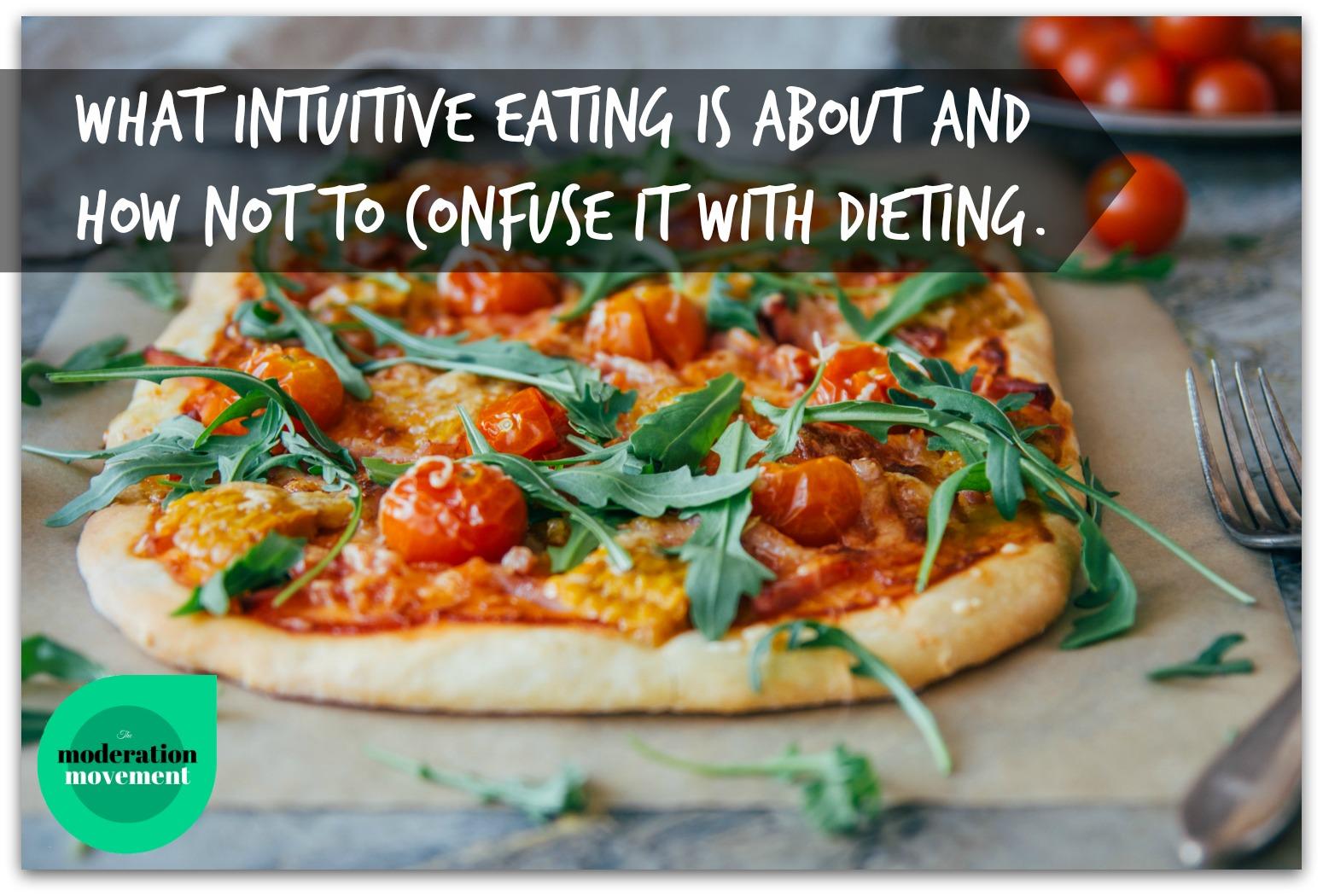What intuitive eating is all about.

What intuitive eating is all about and how not to confuse it with dieting.
Intuitive eating is not about achieving a certain body shape or size, it is about caring for the health of your body.
- It is about nurturing a positive relationship with food, your body and your mind.
- It is about letting go of external food rules. This means letting go of using calories, specific portion sizes, meal plans or the fat, sugar or carbohydrate content of a food to guide your food choices.
- It is about letting go of anxiety, fear and guilt around food and eating.
- It is about nourishing your body when you’re hungry and recognising how much food is enough for you at any given point in time.
- It is also sometimes choosing to eat when you’re not hungry or choosing to eat more than you need or choosing to eat less than you need because that’s what feels right in that moment.
- It is practising eating with some mindful awareness so you can really take pleasure in how food looks, smells and tastes. But you don’t have to be doing this 100% of the time, just much of the time.
- It is knowing what food truly satisfies you both physically and mentally, what food leaves you feeling good inside.
- Intuitive eating is also about being active to be healthy physically and mentally and learning not to be so judgemental of the parts of your body you may not be happy with. Through the process of intuitive eating, you have the chance to start really respecting your body, appreciating it for all the amazing things it can do.
- While the intuitive eating process is not about weight loss, the process gives your body the chance to find a weight that can be maintained without dieting or counting calories. Your weight or body shape and size may or may not change.
It is important to note that while there are principles of the intuitive eating process that most people can start focusing on straight away, not everyone will be ready to start tuning into their appetite or practising mindfulness with eating. This is especially true if you have, or have had, an eating disorder or if you have a very troubled relationship with food or your body. If this is you, you will need help from someone experienced in this field of work, this may be a psychologist or a dietitian, but please make sure they are HAES and Non-Diet Approach friendly.
I would like to acknowledge the work of many health professionals in writing about intuitive eating, especially dietitians Fiona Willer, Fiona Sutherland, Ellyn Satter, Evelyn Tribole and Elyse Resch. You can read much more about intuitive eating in the book Intuitive eating (Evelyn & Elyse) and various books by Ellyn Satter.
Dieting is a very different process; the definition of dieting being to change one’s food habits in order to lose weight, maintain a particular weight or change appearance.
While many will say this is in aid of health, plenty of studies show health benefits without weight focus and we know the overwhelming majority of people will regain this weight and many will end up heavier and actually unhealthier.
Here are some the danger’s with dieting.
- By relying on external factors (or food rules) such as nutrition content, calories, portion sizes or meal plans, over time you lose connection from your body’s internal signals of hunger and fullness and how food feels in your body.
- You may experience anxiety, fear, guilt and shame around food, eating and your body.
- You may become disconnected from what food you truly enjoy and even wish you didn’t have to eat.
- Most dieters end up with a distorted relationship with food and their bodies.
- Worrying about, or counting calories can, and does, damage people’s relationship with food. Studies show dieters have lower self esteem and greater levels of anxiety, depression, emotional distress and body image dissatisfaction than non-dieters. Not everyone who counts calories will experience this, but enough do.
- Dieting has also been shown to be the greatest risk factor for developing an eating disorder.
- So while you may well lose weight when you do diet or use external factors (or food rules) to guide your food choices, you will also most likely regain that weight, plus some, within 1 to 5 years. After years of dieting, some people find they no longer lose weight, even with significant food restriction.
- Long-term, your health suffers, both mental and physical health. Caring for the health of your body becomes a chore or lifelong battle with food and how you feel about yourself.
Ultimately it’s your choice how you decide to manage your eating, I am posting this so that you can better understand the processes of dieting and intuitive eating and work out what feels right for you.
